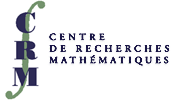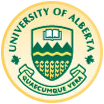 |
|
||||
Biographies
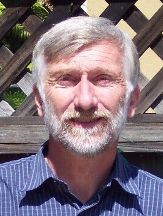 David Aldous
David Aldous
David Aldous is well known for his diverse and original contributions to probability theory. He is Professor in the Department of Statistics at UC Berkeley. He is a winner of the Loeve Prize in Probability, and was a plenary speaker at the 2010 ICM in Hyderabad. He is a Fellow of the Royal Society, and a foreign associate of the National Academy of Sciences.
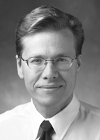 David Donoho
David Donoho
David Donoho has made fundamental contributions to theoretical and computational statistics, as well as to signal processing and harmonic analysis. Donoho received his undergraduate degree from Princeton and his Ph.D. from Harvard in 1983. He was on the faculty of the University of California, Berkeley from 1984 to 1990 before moving to Stanford. In 1991, Donoho was named a MacArthur Fellow. In 2001, he won the John von Neumann Prize of the Society for Industrial and Applied Mathematics (SIAM). In 2009, he was elected a SIAM Fellow, a foreign associate of the French Académie des sciences in 2009, and received an honorary doctorate from the University of Chicago. In 2010 he won the Norbert Wiener Prize in Applied Mathematics, given jointly by SIAM and the American Mathematical Society. He is also a member of the United States National Academy of Science and the American Academy of Arts and Sciences.
 Ron Graham
Ron Graham
Ron Graham is a world renowned leader in the development of discrete mathematics, an area of great importance to modern computer technology. He spent many years at Bell Laboratories, where he served in various capacities including Chief Scientist. He is currently Chief Scientist at the California Institute for Telecommunications and Information Technology and Professor of Computer Science and Engineering at the University of California, San Diego. Professor Graham has won numerous prizes, including the American Mathematical Society's Steele Prize for Lifetime Achievement and is a member of the US National Academy of Sciences. He has also served as President of the American Mathematical Society and President of the International Jugglers Association.
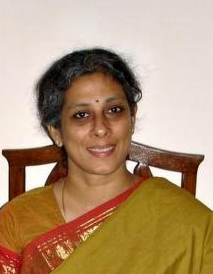 Sujatha Ramdorai
Sujatha Ramdorai
Sujatha Ramdorai was trained at the Tata Institute for Fundamental Research. She has worked in the theory of quadratic forms, real algebraic geometry and motives. In recent years her main focus has been in number theory. In recognition of her work on the theory of quadratic forms, she received the 2006 Ramanujan Prize, the world's most prestigious award for mathematicians working in developing countries. She has also received a number of other awards throughout her career, including an Indian National Science Academy Young Scientist Award (1993), an Alexander von Humboldt Fellowship (1997) and the Shanti Swarup Bhatnagar Award (2004). She was elected Fellow of the Indian National Science Academy in 2005. In 2010 she joined the Mathematics Department at the University of British Columbia as a Tier I Canada Research Chair.
 Peter Sarnak
Peter Sarnak
Peter Sarnak has made major contributions to number theory and to questions in analysis motivated by number theory. His interest in mathematics is wide-ranging, and his research focuses on the theory of zeta functions and automorphic forms with applications to number theory, combinatorics, and mathematical physics.
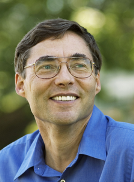 Carl Wieman
Carl Wieman
Carl Wieman received his B.S. from the Massachusetts Institute of Technology in 1973 and his Ph.D. from Stanford University in 1977. He was at the University of Colorado from 1984 to 2006 as a Distinguished Professor of Physics and Presidential Teaching Scholar. In January 2007, he joined the University of British Columbia as the Director of the
Carl Wieman Science Education Initiative;
he retains a part-time appointment at the University of Colorado, Boulder to head the science education initiative he founded. These collaborative initiatives are aimed at achieving departmental-wide sustainable improvement in undergraduate science education. He has carried out research in a variety of areas of atomic physics and laser spectroscopy. His research has been recognized with numerous awards and honorary degrees including the Nobel Prize in Physics in 2001 for the creation of Bose-Einstein condensation.
Wieman has worked on a variety of research and innovations in teaching physics to a broad range of students, including the Physics Education Technology Project, that creates educational online interactive simulations and studies their effectiveness. He also does research on student beliefs about physics and chemistry, learning of quantum physics, and on problem-solving skills. His education work has been recognized with the National Science Foundation’s Distinguished Teaching Scholar Award in 2001, the Carnegie Foundation’s U.S. University Professor of the Year Award in 2004, and the American Association of Physics Teachers’ Oersted Medal in 2007. He is a member of the National Academy of Sciences and serves on the Academy Board on Science Education. He is also a member of the U.S. National Academy of Education.
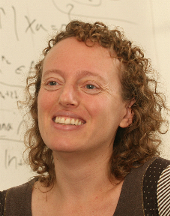 Tamar Ziegler
Tamar Ziegler
Tamar Ziegler received her Ph.D. in 2003 from the Hebrew University under the supervision of Hillel Furstenberg. She spent 2002-2005 as a Zassenhaus Assistant Professor at the Ohio State University, 2005-2006 as a member of the Institute for Advanced Study in Princeton, and 2005-2007 as an Assistant Professor at the University of Michigan. She joined the Mathematics department at the Technion in Fall 2007. Ziegler received an Ostrowski fellowship in 2008, an Alon fellowship for outstanding new faculty members in Israeli universities in 2008-2011, and a Landau Fellowship in 2008-2010. Her research interests are ergodic theory, combinatorics and number theory.


